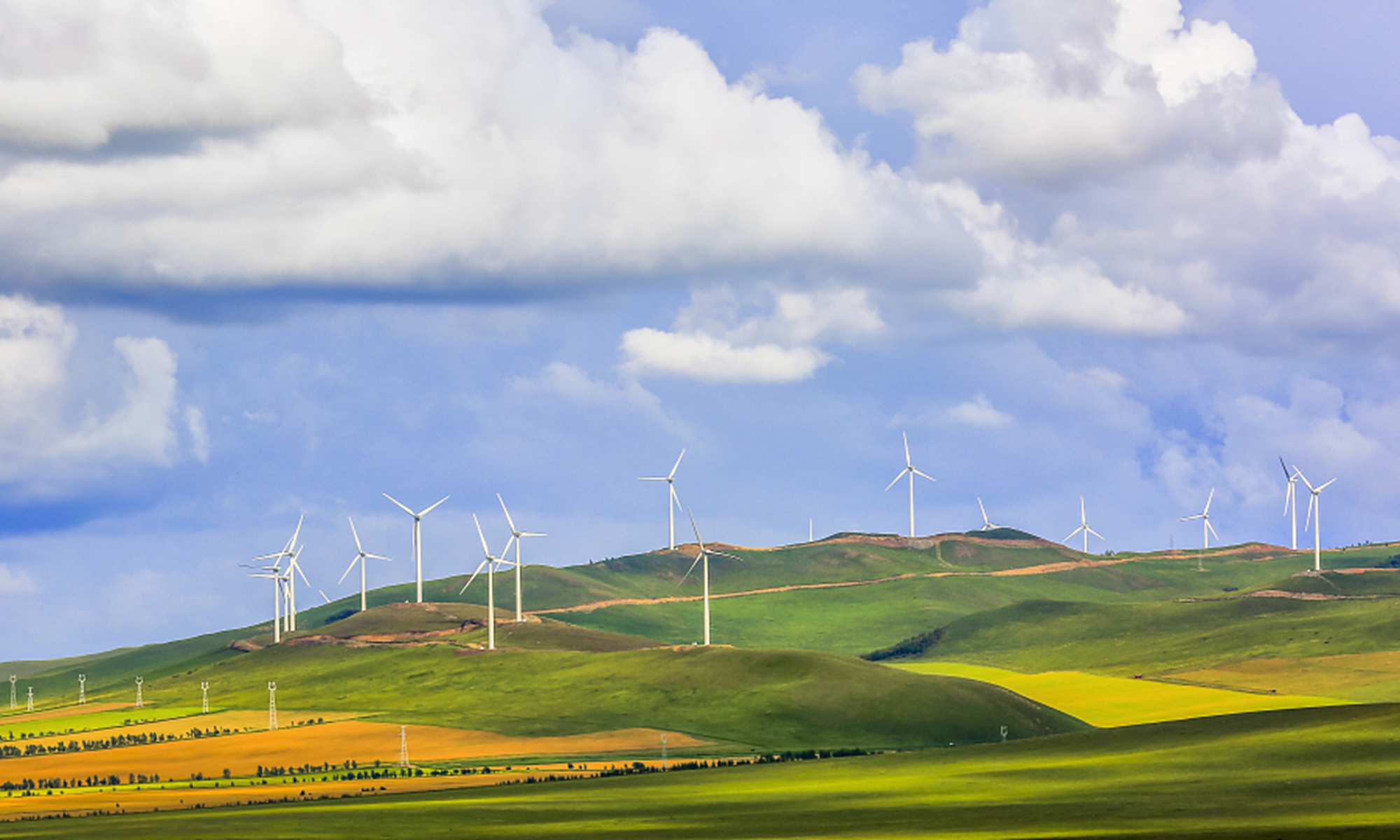
Photo: VCG
According to China's Ministry of Ecology and Environment, US Special Presidential Envoy for Climate John Kerry is scheduled to visit China from August 31 to September 3 at the invitation of the Chinese government. US media outlet Voice of America Chinese said that Kerry aims to pressure Beijing to make new commitments to reduce emissions during this visit.
China claimed its clear targets for emissions reductions at the Climate Ambition Summit 2020 in December. Beijing's decisions on dealing with climate change are well thought out, and its words and actions are consistent with each other. China will not make a "great leap forward" in terms of carbon peaks and neutrality because of external interference and pressure. Nor will it slow down its pace because of short-term difficulties and challenges.
In 2021, when the Biden administration returned to the Paris Agreement after its short exit, China expressed its willingness to work with the US and the international community to address common challenges. For instance, Beijing and Washington were able to release the China-US Joint Statement Addressing the Climate Crisis in April. China's attitude toward climate change is serious and will not waver.
China aims to achieve carbon emissions peaks in 2030 and carbon neutrality in 2060. The "3060" target, first of all, is a strategic decision that responds to the inherent needs of China's socio-economic development. According to the latest assessment report of the United Nations, it is urgent for all countries to carry out effective measures to achieve carbon emissions peaks and carbon neutrality. Therefore, China has committed to making more efforts to address climate change beyond the Paris Agreement, striving to fulfill the "3060" target in advance.
This is to improve the quality of the environment and better meet the people's wishes and needs for a better life. Moreover, by proactively fulfilling its responsibility in terms of climate change response, China will prove itself to be a responsible power. It will not only make greater contributions to the international community's response to climate change, but also promote other countries to work together to meet the challenges.
Second, the "3060" target is a comprehensive judgment that fully takes into account climate change mitigation and adaptation. Given the long-term and arduous nature of tackling climate change, there is indeed a long way to go to realize the tasks of climate change mitigation and adaptation. We need to make persistent efforts to slow down the magnitude and increase of global temperatures through various means and methods. We must ultimately curb climate change within a scope that people can bear. In addition to that, we also need to better adapt ourselves to various climate changes that are causing fluctuations with current temperature levels. We must improve people's wellbeing.
"Optimization" is obvious an important basis for path selection to realize the two tasks of climate change mitigation and adaptation. William Dawbney Nordhaus, a recipient of the 2018 Nobel Memorial Prize in Economic Sciences, suggests that people need to choose an optimal path between climate change and economic development in order to realize a balanced relationship among production, life and ecology.
Both excessive and insufficient emission reductions are detrimental to effective allocations of resources. They cannot maximize people's welfare. Therefore, when it comes to making decisions on the use of coal and other issues in climate-related industries, it's necessary for China to adhere to rational thinking. China will need to fully take into account climate change mitigation and adaptation.
Third, perseverance is the most important to achieve the "3060" target, which is an important part of China's ecological civilization construction strategy. China has begun to formulate related roadmaps to advance the realization of the target. This, of course, is facing many difficulties and challenges.
On one hand, China has to realize carbon neutrality from carbon peak in 30 years. The task is hard, and China is pressed for time compared with developed countries in the West. On the other, China is still a developing country, and it is facing a heavy task to realize high-quality economic development and double its GDP by 2035. To achieve the "3060" target simultaneously with economic leapfrogging, China will face more challenges than the US and developed countries across Europe. As such, China must maintain its strategic patience based on rational decision-making and adhere to its own development rhythm to finally win the victory in the protracted war of realizing "dual carbon" goals.
The author is executive director of the Center for Environmental Economic Studies of Fudan University. opinion@globaltimes.com.cn




